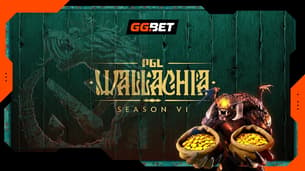
Swedish Esports Betting Regulations vs Casino Gaming: 2025 Legal Framework Analysis

Sweden enters 2025 with a mature yet increasingly stringent framework for online wagering and interactive gaming. Regulatory oversight has intensified, tax rates have edged higher, and compliance standards now demand greater precision from operators and suppliers alike. The result is a distinct regulatory divide between esports betting and online casino gaming, both governed under the same authority but viewed through different lenses of risk and responsibility. This analysis outlines Sweden’s current legal framework, explores the contrasts between esports and casino gaming, and evaluates what operators must anticipate in the year ahead.
Overview of Sweden’s 2025 Gambling Framework
The Role of Spelinspektionen and Core Legislation
Spelinspektionen, Sweden’s gambling authority, manages licensing, supervision, enforcement, and consumer protection. Its authority stems from the Gambling Act, Gambling Ordinance, Gambling Tax Act, and accompanying regulations addressing marketing, integrity, and technical compliance. Supplier licensing has been fully embedded to ensure transparency from game creation to delivery, requiring all platform vendors and content providers to be authorized. The agency collaborates with financial and consumer watchdogs, publishes enforcement notices, and issues interpretative guidelines that shape operational practices across the market.
Licensing Categories: Sportsbook and Online Casino
Licensing is divided by product category, with clear boundaries between fixed-odds wagering and games such as slots, virtual tables, and live dealer formats. Operators must define their approved product scope and maintain compliance across safer gambling measures and technical standards unique to each vertical. Cross-selling is permitted within approved categories, though any diversification or product expansion must first gain regulatory approval. For instance, a licensed operator expanding into esports wagering or online casinos must undergo updated certifications through the Nitrowin casino licensing pathway to remain fully compliant under Swedish law.
Channelization and Consumer Safeguards
Sweden’s gambling policy focuses on maintaining high channelization rates within the licensed ecosystem while minimizing harm. Operators must deploy robust ID verification, transparent risk tools, and intervention systems that detect harmful play. Bonus and promotion rules remain tightly capped to discourage aggressive marketing or repetitive acquisition campaigns. With a higher gross gaming revenue tax in 2025, the market’s stability now relies heavily on safer play strategies, moderated marketing, and a clear distinction between entertainment and professional-level wagering.
Esports Betting: Scope and Regulatory Controls
Market Definition and Eligible Events
Esports betting falls under event wagering when outcomes depend on skill-based contests and are verified by official, reliable data. Authorized operators typically focus on sanctioned leagues or tournaments that uphold transparent rules and integrity partnerships. Betting on youth or amateur-level competitions is strictly prohibited. Data accuracy is paramount, with firms required to verify source reliability, latency management, and redundancy systems for live betting environments.
Integrity and Anti-Manipulation Standards
Operators must implement integrity protocols that assess risk per title and competitive tier. Automated systems detect betting anomalies or odds fluctuations, triggering suspicious activity reports to both regulators and esports integrity organizations. Partnerships with tournament organizers strengthen compliance through participant codes, access restrictions, and technical vetting of gaming environments. Matches may be removed from betting lists when game updates, roster changes, or data inconsistencies threaten fair play.
Player Protection and Betting Limitations
Esports betting attracts a younger demographic, so Sweden enforces strict verification and targeting rules. Operators must prevent influencer-based promotions that appeal to minors and deactivate personalized marketing for profiles under review. To better understand how different esports titles and competitive formats shape safe wagering practices, resources such as esports betting tips offer strategic context that helps clarify why certain bet types require tighter oversight. In-play betting is permitted but limited in scope for lower-tier events. Complex or volatile prop bets, especially those involving early-round actions or micro-objectives, face additional scrutiny to reduce manipulation and protect participants.
Online Casino Gaming: Scope and Standards
Game Certification and Transparency
All online casino games undergo certification by accredited labs to meet Swedish technical and fairness standards. Return-to-player (RTP) values must be displayed prominently both in the game lobby and within information screens. Live dealer games are audited for fair dealing and anti-collusion safeguards. Any game modification requires re-certification or regulator notification, and operators must maintain comprehensive audit logs to resolve player disputes effectively.
Bonus Limits and Responsible Play Features
Sweden restricts promotional flexibility, allowing only one primary sign-up bonus per player across an operator group. Retention promotions face similar limits to discourage repetitive or high-risk marketing. Deposit, loss, and time limits must be set before play begins and cannot be bypassed. Players receive timed reality checks and one-click access to self-exclusion and cooling-off tools. Reverse withdrawals are discouraged or disabled to prevent impulsive betting with pending funds.
Game Design and High-Risk Product Rules
To mitigate addiction risks, slot spin speeds are capped, autoplay is banned, and quick-play options are limited. Game visuals cannot misrepresent net losses as wins, and stake adjustment prompts must remain neutral. Jackpot titles or games with high volatility require additional transparency, including detailed payout odds and player behavior monitoring that prompts direct outreach when activity suggests potential harm.
Comparative Insights: Esports Betting vs Online Casino
Integrity and Risk Structure
Esports betting’s main vulnerabilities stem from external factors such as team dynamics, game patch cycles, and competition integrity. Online casinos, on the other hand, face internalized risks tied to player behavior, game speed, and variance. Esports operators focus on event authenticity and match oversight, while casino operators prioritize algorithmic transparency and player protection. These distinct challenges require divergent regulatory supervision and compliance investments.
Product Design and User Outcomes
Esports wagering depends on market depth, fair settlement policies, and scalable staking limits based on event credibility. Casino products emphasize pacing, session control, and clear presentation of RTP. Both rely on real-time data monitoring, player feedback, and early intervention when spending patterns or playtime exceed safe thresholds.
Compliance and Cost Dynamics
Esports operators shoulder high costs tied to data rights, integrity systems, and monitoring partnerships. Casino operators invest more in certification, studio integration, and ongoing updates. In both cases, analytics-driven duty-of-care programs are mandatory, documenting interventions and outcomes to demonstrate compliance. The 2025 tax rate, alongside license renewal and supplier fees, continues to pressure profit margins, shifting business models toward sustainable, responsible engagement strategies.
Marketing, Player Safety, and Regulatory Oversight
Spelpaus and Risk Communication
Spelpaus, Sweden’s national self-exclusion platform, remains central to responsible gaming enforcement. Operators must verify status before login and prevent access or marketing to excluded users. During play, systems deliver timed reality checks summarizing time spent, wagers, and outcomes. Staff receive ongoing training to handle player contacts and escalate high-risk cases effectively.
Advertising and Youth Protection in Esports
Marketing must remain moderate, transparent, and never appeal to minors or vulnerable individuals. Third-party affiliates and influencers are subject to full operator accountability. For esports audiences, advertising must avoid youth-oriented platforms, limit exposure during streaming hours popular with underage users, and ensure that sponsorship visibility does not cross into areas primarily viewed by minors.
Data, Privacy, and Affordability Governance
Operators must comply with GDPR and Sweden’s national privacy laws. Data collection requires clear consent, limited retention, and secure handling. Affordability checks are risk-based rather than income-capped, focusing on behavioral triggers such as increased deposits, time spent, or erratic staking. Documentation of intervention processes forms a key compliance requirement during regulatory audits.
Taxation, Payments, and Enforcement
Fiscal Policy and Player Tax Obligations
Since 2024, Sweden’s gross gaming revenue tax has increased, reflecting the government’s focus on sustainable market contribution. Players continue to enjoy tax-free winnings from licensed domestic operators, while gains from unlicensed or offshore sites may incur tax liabilities. Regulators encourage players to verify licensing status and engage only within the authorized framework for consumer protection.
Anti-Money Laundering and Payment Restrictions
AML compliance remains tightly integrated with EU directives. Operators perform continuous transaction monitoring, verify source-of-funds for high-risk accounts, and report suspicious activity to Sweden’s financial intelligence unit. Payment service providers may be ordered to block transfers to unlicensed sites, ensuring higher channelization and financial integrity within the regulated market.
Sanctions, Blacklists, and Cross-Border Oversight
Spelinspektionen publishes public sanctions for non-compliance, including license warnings, fines, or suspensions. Unlicensed operators are listed for payment and search blocking. The authority also monitors cross-border gambling mechanics such as loot boxes or virtual item betting. If items hold real-world monetary value, they fall under the Gambling Act’s scope, extending regulatory power across digital asset gaming environments.
Conclusion
Sweden’s 2025 gambling framework emphasizes maturity, integrity, and consumer welfare. Esports betting and casino gaming now share a unified compliance philosophy but diverge in operational risk and oversight intensity. For operators, maintaining transparency, player protection, and strict adherence to licensing standards is no longer optional—it is a condition of survival in a tightening, data-driven regulatory climate.

Kateryna Prykhodko er en kreativ forfatter og pålidelig bidragyder hos EGamersWorld, kendt for sit engagerende indhold og sin sans for detaljer. Hun kombinerer historiefortælling med klar og gennemtænkt kommunikation og spiller en stor rolle i både platformens redaktionelle arbejde og interaktioner bag kulisserne.
 PGL Wallachia sæson 6 Oversigt over dag 3 og tidsplan for dag 4Oplev PGL Wallachia sæson 6 dag 4 tidsplan og forudsigelser.
PGL Wallachia sæson 6 Oversigt over dag 3 og tidsplan for dag 4Oplev PGL Wallachia sæson 6 dag 4 tidsplan og forudsigelser. PGL Wallachia sæson 6 Oversigt over dag 1 og tidsplan for dag 2Oplev PGL Wallachia sæson 6 dag 2 tidsplan og forudsigelser.
PGL Wallachia sæson 6 Oversigt over dag 1 og tidsplan for dag 2Oplev PGL Wallachia sæson 6 dag 2 tidsplan og forudsigelser. Arc Raiders: Stella Montis våbenkufferterArc Raiders-spillere gennemsøger Stella Montis for våbenkufferter, der er gemt i det to-lags kompleks. Denne guide forklarer, hvor man kan finde dem, hvilke typer der findes, og hvordan nyankomne
Arc Raiders: Stella Montis våbenkufferterArc Raiders-spillere gennemsøger Stella Montis for våbenkufferter, der er gemt i det to-lags kompleks. Denne guide forklarer, hvor man kan finde dem, hvilke typer der findes, og hvordan nyankomne Umamusume: Smukke Derby-koderAlt om Umamusume: Pretty Derby-koder - få gratis bonusser, indløs koder, og styrk dine figurer! En guide til brug af koder og tips til at komme videre i spillet uden ekstra udgifter.
Umamusume: Smukke Derby-koderAlt om Umamusume: Pretty Derby-koder - få gratis bonusser, indløs koder, og styrk dine figurer! En guide til brug af koder og tips til at komme videre i spillet uden ekstra udgifter.

